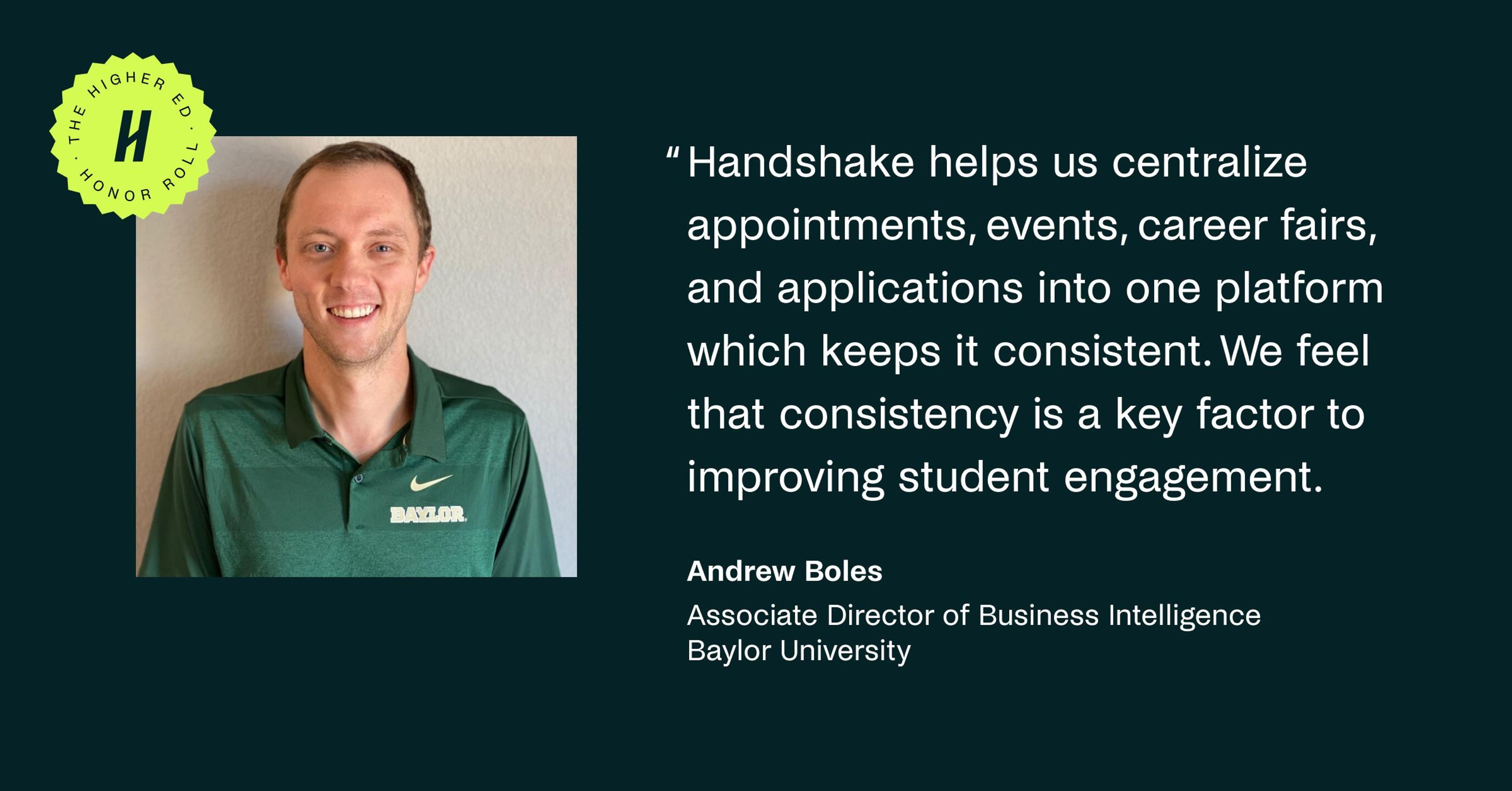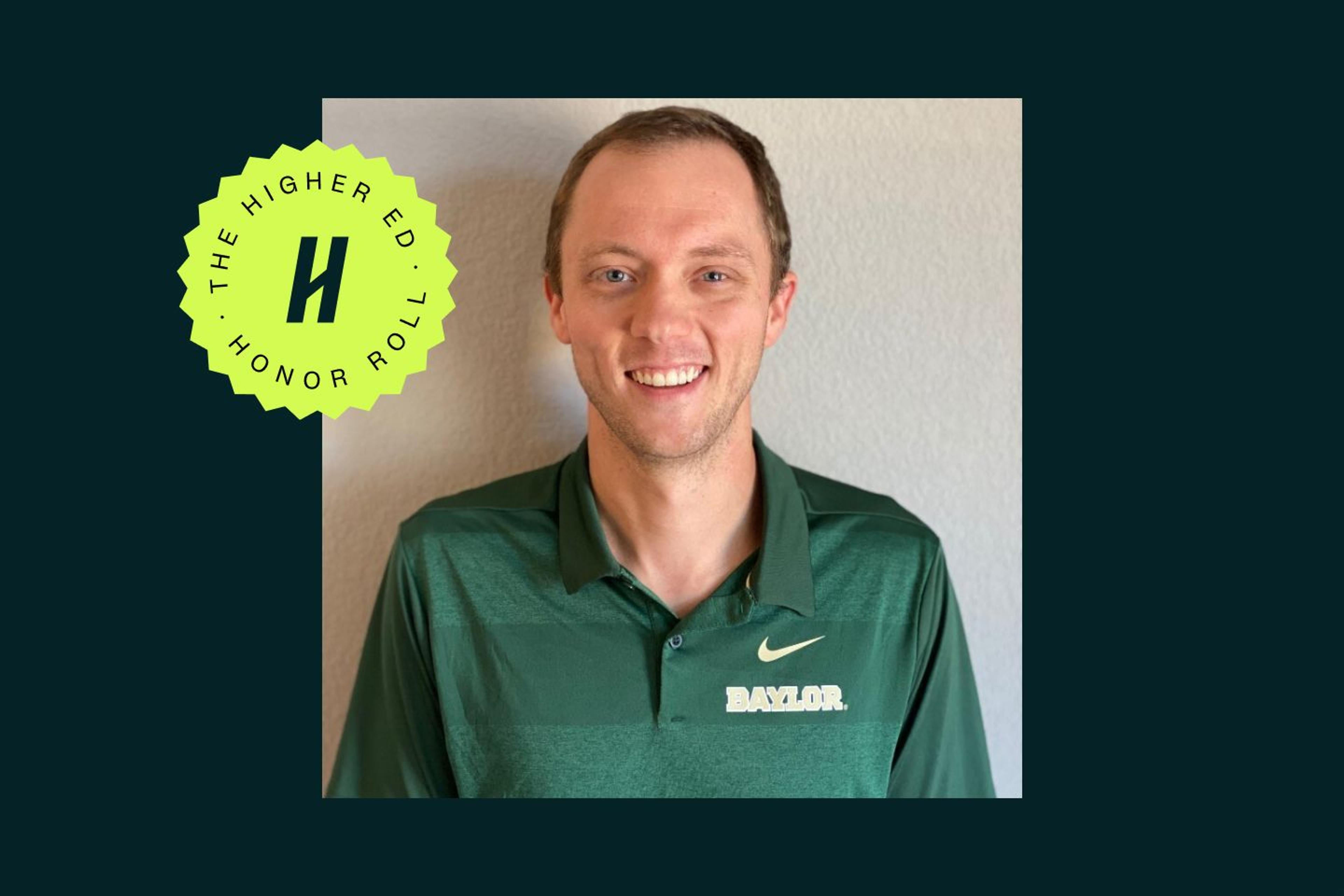With a background in physics and computer engineering, supporting professional development with data is where Andrew Boles excels. As the Associate Director of Business Intelligence at Baylor University, Andrew uses data analysis to gain insights that support students as they take their next professional steps. His passion for helping students make the most out of their career development can be gleaned from his favorite quote by Chaim Potok: "A span of life is nothing. But the man who lives that span, he is something. He can fill that tiny span with meaning, so its quality is immeasurable though its quantity may be insignificant."
Read our Honor Roll interview to learn more about what Andrew and his team are doing to engage students in career exploration at Baylor.
What are the biggest challenges your students face when it comes to professional development and career exploration? How do you and your career team help solve for them?
One of the biggest challenges that our students face is taking personal initiative into preparing for their careers early in their college journey. At Baylor, data has shown that the earlier a student engages with the career center, the more likely they are to find success upon graduation. Our career center is trying to engage as much as possible with students during their first few years of college in order to help them put their best foot forward.
What is one of your favorite events or programs that you or your team have implemented for your students?
We host a career fair that happens twice per year which we call "Career Day” though it’s more of a career week. We have employers on campus throughout the week as well as a large career fair that hosts over 100 employers and nearly 1 in 4 Baylor students attend. In order to provide students and employers with the best experience, we have implemented several innovative technology solutions to help streamline the entire process and go above and beyond for everyone involved.
And where does Handshake fit into your tech stack?
Handshake helps our team centralize student engagement into one platform. Having all appointments, events, career fairs, and job applications in one place keeps it consistent, and we feel that consistency is one of the key factors to improving student engagement. It also helps with my data modeling as the data from all of those areas come from one platform as well. I actually have an entire section of my data model devoted to multiple Handshake tables!
Career services teams are consistently under pressure to prove their value to institutional leadership. How are you utilizing data from Handshake to effectively provide leadership with an accurate and compelling view of programmatic success?
We utilize Handshake data in a variety of ways. An example of this is to get a snapshot of how well our career center engages with students and how effective those engagements truly are. Handshake shows the impact that our career coaches have on the success of Baylor students, and being able to show that to both departmental and university leadership post-graduation is invaluable.

What is one of your favorite student success stories?
While my role is not student facing, I do have the opportunity to mentor student workers, and I am very pleased to say that both of my senior year data analyst assistants went on to accept great jobs in data fields! It is always great to find students that have a passion for data analysis.
As the world of work continues to evolve, career centers have to adapt to provide effective help to students. Can you tell us about an impactful initiative you’ve implemented at Baylor?
We have done some exciting and innovative things at the Baylor Career Center, especially around data and technology. One that is particularly impactful that I implemented is our First Destination Survey (FDS) process. The process allows for near daily updates for FDS student responses to be streamlined to Power BI dashboards—a group of systems that connect data sources—which our career coaches utilize in assisting students. The process was developed to minimize human error, ensure data integrity, and give career coaches the ability to focus on helping students instead of processing survey data. Additionally, we leverage a set of dashboards that are updated for departmental leadership to give them an in-depth overview of how well the department is proceeding through the FDS process.
